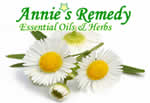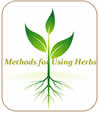Herpes Simplex Cold Sores Natural Treatment

Melissa oil (lemon balm)
extracts kill herpes viruses
Bergamot Oil * Bitter Melon * Echinacea * Eucalyptus * Garlic * Horseradish root * Hyssop * Lemon Balm * Self-Heal * St. John's Wort * Tamanu Oil * Tea Tree oil *
Herpes simplex virus, (HSV), resides deep in the nerve roots and may reactivate at any time causing the same symptoms in the same location marked by a group of blisters on a red base.
|
| |||
|---|---|---|---|
 Bulk Herbs |
 Bitters & Syrups |
 Herbal Extracts |
 Herbal Health |
Herpes Remedies
HSV, or cold sores are often triggered by cold and flu viruses. These blisters dry up rapidly and leave scabs that last anywhere from a few days to a few weeks. These painful blisters can be treated with antiviral herbs and ointments to to reduce pain and encourage healing. Natural treatments can be helpful in avoiding the risk of developing drug resistance that exists with single-chemical agents. Coconut oil with a few drops of bergamot essential oil makes a wonderful chapped lip and cold sore treatment in the winter. Keep a small jar handy and apply liberally. Echinacea is another herb that inhibits herpes viruses. Echinacea also produces a numbing sensation that may offer relief from cold-sore pain.
Among the most studied antiviral herbs are various members of the mint family (Lamiaceae), most notably lemon balm (Melissa) followed by sage, heal all (Prunella vulgaris), mint, rosemary, and wild thyme. The tannins and other pytochemicals in lemon balm extracts deter certain viruses, notably those that cause mumps and herpes. (Duke,James, Ph.D.) Hyssop extracts have exhibited antiviral activities (especially against the Herpes simplex virus that causes cold sores).
St. John's wort is a particularly suitable traditional treatment for herpes and other viral infections because it combines wound healing with antiviral properties. Formulas that include lemon balm and St. John's wort are often used in herbal practice and are very effective. St. John's can be used in several ways to fight herpes, internally in capsules, tea, or tinctures can be taken internally. Externally, compresses made from St. Johns tea and St Johns wort infused oil can be applied to active lesions.
Tea tree oil is a potent antifungal and antiviral agent and has been shown to block HSV adsorption in vitro. The wide availability of tea tree and it's relatively low price make it one of the most cost effective treatments you can find. An ointment made with a 3 percent solution of bee propolis is used in topical application on cold sores.
A simple bag of black or green tea is a tried and true home remedy for herpes. Steep it in hot water a few moments to allow the leaves to unfurl, let it cool and place on the lesion. You can also use pure aloe vera gel to quell the sting of herpes lesions.
Looking for something you can read offline? Join our mailing list and get a free copy of Methods for Using Herbs. This free handbook includes instructions on how to make basic herbal preparations at home. It covers making herbal teas, herb infused oils and balms, tinctures, and more.
-
Yarnell E, Abascal K, Rountree R. Herbs for herpes simplex infections. Altern Complement Ther. April 2009,15(2): 69-74.
American Botanical Council
Melia (Melia azedarach), tea tree (Melaleuca alternifolia) oil, propolis, and St. John's wort (Hypericum perforatum) have been successfully used to treat HSV. A protein from melia leaves, meliacine, and a compound found in the fruit, 28-deacetylsendanin, interfere respectively with DNA synthesis of the virus and viral replication.
- Phyllis A. Balch. "Prescription for Herbal Healing" Avery, (2002) Bitter melon exytracts are two to thre times more effective that the popular prescription drug acyclovir (Zovirax) at killing strains of herpes viruses that are not drug resistant






















